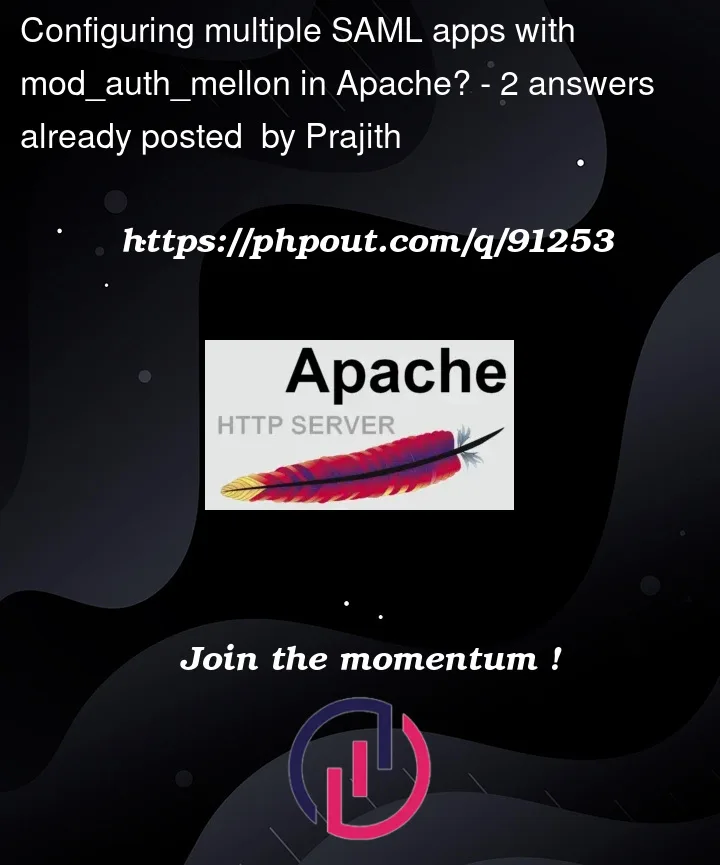We have a requirement to support SAML for SSO (Okta and Google). I have been able to set up my own custom SAML application in Google and configure mellon in apache. However, we have a requirement to configure SAML in Okta for customers and SAML in Google for our internal users.
#################################################################################
# Global configuration for mod_auth_mellon.
# This configuration is shared by every virtual server and location in this instance of apache.
#################################################################################
# MellonCacheSize sets the maximum number of sessions which can be active at once. When mod_auth_mellon reaches this limit, it will begin removing # the least recently used sessions. The server must be restarted before any changes to this option takes effect.
# Default: MellonCacheSize 100
MellonCacheSize 100
# MellonLockFile is the full path to a file used for synchronizing access to the session data. The path should only be used by one instance of apache at a time.The server must be restarted before any changes to this option takes effect.
# Default: MellonLockFile "/var/run/mod_auth_mellon.lock"
MellonLockFile "/var/run/mod_auth_mellon.lock"
# MellonPostCount is the maximum amount of saved POST requests
# Default: MellonPostCount 100
MellonPostCount 100
###########################################################################
# End of global configuration for mod_auth_mellon.
###########################################################################
<Location />
MellonEnable "info"
Require valid-user
AuthType "Mellon"
MellonVariable "cookie"
MellonSamlResponseDump On
MellonSPPrivateKeyFile /etc/apache2/googlesaml/mellon.key
MellonSPCertFile /etc/apache2/googlesaml/mellon.crt
MellonSPMetadataFile /etc/apache2/googlesaml/mellon_metadata.xml
MellonIdPMetadataFile /etc/apache2/googlesaml/GoogleIDPMetadata.xml
MellonEndpointPath /mellon
MellonDefaultLoginPath /
RequestHeader set MELLON_NAME_ID %{MELLON_NAME_ID}e
</Location>
<VirtualHost *:443>
ServerName host_name
DocumentRoot /var/www/html
SSLEngine on
SSLCertificateFile /etc/ssl/certs/server.pem
SSLCertificateKeyFile /etc/ssl/private/private.key
<Location />
AuthType Mellon
MellonEnable auth
Require valid-user
</Location>
<Location /protected>
AuthType Mellon
MellonEnable auth
Require valid-user
</Location>
</VirtualHost>
How can we differentiate incoming request between Okta and Google (SAML) as Location /> directive can be configured by only either one of SAML provider.




2
Answers
I have tried below config and it works for openidc and mellon both. Apparently, this scenario would be helpful for those willing to configure Okta (mellon) and google sso for internal IDP.
The mod_auth_mellon module only applies SAML to a specific
<Location />...</Location>, so you would have to configure a location for each idP provider.If you want to do this dynamically based on the user’s headers, I wouldn’t recommend mod_auth_mellon, having your application serve up the authentication would make more sense.
Hope this helps.